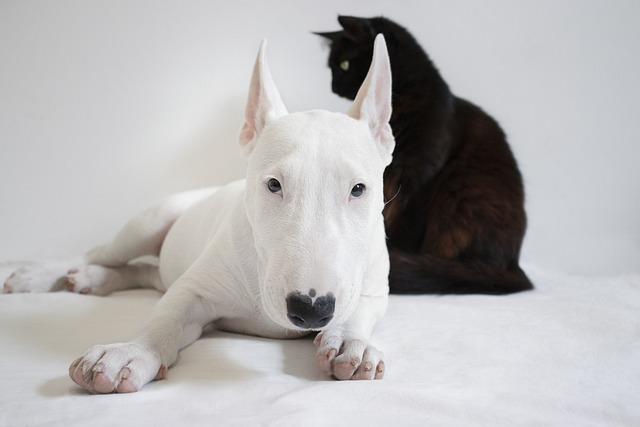
Can a cold in a dog be transmitted to other dogs
In the morning, the usually energetic dog lies in its nest with a drooping head and occasionally sneezes, releasing clear nasal water.
When the dog that accompanies you day and night suddenly stops jumping to the food bowl as usual, and even trembles uncontrollably, every owner's heart will tighten instantly. Dogs can't speak, they can only use these abnormal behaviors to send us distress signals. Understanding the reasons behind dogs not eating and trembling is not only the key to unlocking their body codes, but also an important way to protect this precious companionship.
From a physiological perspective, if a dog doesn't eat and trembles, it is likely that the disease is at work. Oral problems are often "invisible killers" that are easily overlooked. When a dog suffers from periodontitis and oral ulcers, every chewing will bring unbearable pain, which makes them stay away from food. And trembling may be a stress response caused by pain, just like we humans will tremble unconsciously when suffering from illness. For example, a golden retriever that was originally lively suddenly has no interest in his favorite beef jerky, and shakes his body from time to time. After careful examination, you may find that his gums are red and swollen, and there is thick tartar on his teeth.
Gastrointestinal discomfort is also a common cause. Dogs are very curious, and occasionally eating foreign objects or spoiled food may cause gastroenteritis. Intestinal colic makes them lose their appetite, and the trembling of the body is silently telling the discomfort.
In addition, the trembling and refusal to eat of dogs may also be related to more serious systemic diseases. For example, heart disease can cause dogs to have difficulty breathing and physical weakness, which in turn affects their appetite. At the same time, because of impaired heart function and insufficient blood supply to the body, trembling symptoms appear. Kidney disease prevents toxins from being discharged normally. The accumulated toxins stimulate the stomach and intestines, causing dogs to feel nauseous and vomit, and no longer want to eat. The electrolyte disorder caused by kidney disease can cause muscle spasms and body tremors.
 In addition to physical diseases, the impact of psychological factors on dogs should not be underestimated. Dogs are emotional and sensitive animals, and sudden changes in the environment may bring them great pressure. When the owner moves, welcomes new members to the family, or encounters loud noises such as thunder and firecrackers, the dog will fall into anxiety and fear. This kind of emotional fluctuation will directly affect their appetite, and trembling is the external manifestation of their fear. Imagine that a pastoral dog that originally lived in a familiar small courtyard was suddenly brought to a noisy and crowded city apartment. The strange smell and harsh noise will make it feel at a loss, curled up in the corner and shivered, and it will not be interested in any food.
In addition to physical diseases, the impact of psychological factors on dogs should not be underestimated. Dogs are emotional and sensitive animals, and sudden changes in the environment may bring them great pressure. When the owner moves, welcomes new members to the family, or encounters loud noises such as thunder and firecrackers, the dog will fall into anxiety and fear. This kind of emotional fluctuation will directly affect their appetite, and trembling is the external manifestation of their fear. Imagine that a pastoral dog that originally lived in a familiar small courtyard was suddenly brought to a noisy and crowded city apartment. The strange smell and harsh noise will make it feel at a loss, curled up in the corner and shivered, and it will not be interested in any food.
Separation anxiety is also an important psychological reason for abnormal behavior in dogs. Some dogs are extremely dependent on their owners. When their owners leave home for a long time, they will fall into deep anxiety and loneliness. This negative emotion will seriously interfere with their normal physiological functions, manifested as refusal to eat and body trembling.
When facing a dog that does not eat and trembles, the owner must first remain calm. Excessive tension and anxiety will be transmitted to the dog, making it more uneasy. Gently stroke the dog, soothe it with a soft voice, and create an environment full of security for it. Then, carefully observe other symptoms of the dog, such as whether it is accompanied by vomiting, diarrhea, fever, etc. These details can provide important clues for determining the cause of the disease. If the situation does not improve, be sure to take the dog to a professional pet hospital for treatment in time. In the hospital, the doctor will accurately find out the cause of the disease and provide targeted treatment through detailed interviews, comprehensive physical examinations, and even with the help of advanced medical methods such as blood tests and X-rays.
During the treatment process, the owner's company and care are crucial. For sick dogs, you should feed them medicine and adjust their diet on time according to the doctor's instructions. If it is an oral problem, you may need to replace the dog's soft and easy-to-chew food; if it is gastrointestinal discomfort, you should follow the principle of eating small meals and gradually restore the dog's gastrointestinal function. For abnormalities caused by psychological factors, the owner should give the dog more care and company. Spend more time playing with them, use toys and games to divert their attention; when the dog shows courage and relaxation, give rewards and praise in time to help them gradually overcome fear and anxiety.
Every dog is a unique little angel in the owner's life. When they send us a distress signal by not eating and trembling, we should explore the cause of the disease with a professional attitude and care for them with full love. This process may be difficult, but as long as you see your dog regain its vitality, wagging its tail happily, and eating food with big mouthfuls, all the efforts will become extremely worthwhile.

In the morning, the usually energetic dog lies in its nest with a drooping head and occasionally sneezes, releasing clear nasal water.

When the dog that accompanies you day and night suddenly stops jumping to the food bowl as usual, and even trembles uncontrollably, every owner's heart will tighten instantly.

When our lively furry friends, who used to light up at the sight of food, suddenly lose interest in their favorite snacks and even start vomiting, every owner's heart tightens instantly.

In the late night, the dog that was originally quietly sleeping suddenly and restlessly rubs on the floor, scratches its skin frantically with its paws,

When the old companion at home no longer has a vigorous gait and the once bright eyes are covered with a layer of mist, every dog owner has to face a heavy and unavoidable topic — the health, as well as the life and death, of senior dogs.

The silent and loyal companionship of dogs is the warmest comfort in life. However, when heart diseases quietly erode their health, those subtle changes are often easily overlooked.